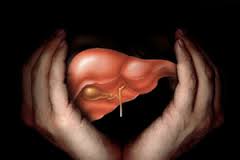- Home
- Editorial
- News
- Practice Guidelines
- Anesthesiology Guidelines
- Cancer Guidelines
- Cardiac Sciences Guidelines
- Critical Care Guidelines
- Dentistry Guidelines
- Dermatology Guidelines
- Diabetes and Endo Guidelines
- Diagnostics Guidelines
- ENT Guidelines
- Featured Practice Guidelines
- Gastroenterology Guidelines
- Geriatrics Guidelines
- Medicine Guidelines
- Nephrology Guidelines
- Neurosciences Guidelines
- Obs and Gynae Guidelines
- Ophthalmology Guidelines
- Orthopaedics Guidelines
- Paediatrics Guidelines
- Psychiatry Guidelines
- Pulmonology Guidelines
- Radiology Guidelines
- Surgery Guidelines
- Urology Guidelines
Text-Messaging prevents alcohol relapse in Liver-Transplant Candidates

A liver transplant is an operation that replaces a patient's diseased liver with a whole or partial healthy liver from another person.Liver failure due to alcohol abuse is the second most common indication for liver transplantation in the United States. Most centers require at least a six-month period of abstinence as a condition of listing for transplantation.In a pilot study, it has been found out that Text-Messaging effectively prevents alcohol relapse in Liver-Transplant Candidates.
Each year in the U.S., more than 40,000 patients need a liver transplant because of complications associated with cirrhosis and liver failure. Alcohol-related liver disease (ALD) alone accounts for nearly 30 percent of all liver transplants, yet up to 50 percent of patients with alcoholism return to drinking within five years of undergoing a liver transplant. Many transplant centers now require a minimum of six months of alcohol abstinence prior to placing candidates on the United Organ Network Sharing waiting list. This pilot study examined the use of text messaging as an alcohol relapse-prevention intervention for patients with ALD scheduled to undergo a liver transplant.
The participants were 15 individuals (11 men and 4 women) diagnosed with ALD who had reported at least one drinking episode in the previous year. They were randomized to receive one of two options for eight weeks: eight candidates received text messages – three text messages/day for the first four weeks of the study, and three messages/week for the last four weeks – and seven candidates received standard care. Assessments were conducted at four and eight weeks. Outcome measures consisted of the percent of messages responded to and post-treatment intervention satisfaction ratings. Clinical outcomes included measures of alcohol consumption, stress, abstinence self-efficacy, and alcohol craving.
Participants who received the text messages reported high satisfaction with the intervention looked forward to the messages and found the program easy to complete. This group also had better treatment outcomes than those who received standard care, and they maintained higher levels of self-efficacy and maintained lower stress. The authors believe that mobile cell alcohol interventions may hold significant promise in helping ALD liver-transplant patients maintain sobriety.

Disclaimer: This site is primarily intended for healthcare professionals. Any content/information on this website does not replace the advice of medical and/or health professionals and should not be construed as medical/diagnostic advice/endorsement or prescription. Use of this site is subject to our terms of use, privacy policy, advertisement policy. © 2020 Minerva Medical Treatment Pvt Ltd